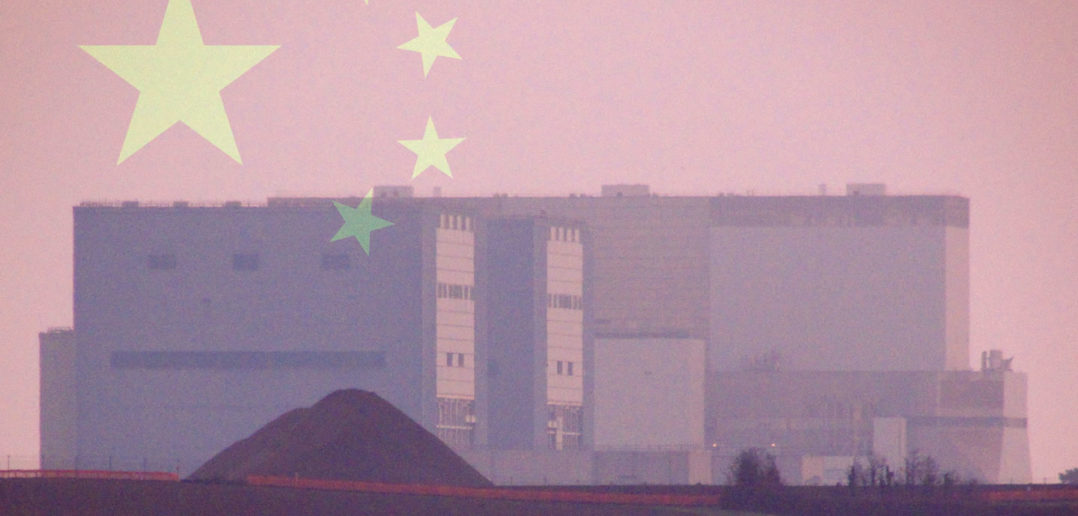As Britain plunges into ever-deeper crisis over Brexit, China is apparently looking to exploit the ongoing uncertainty by taking a key stake in the country’s nuclear power plants. China’s ploy, part of its expansionist vision known as ‘Belt and Road’, may seem attractive to the British government in the short term as it plots its future course outside the European Union. But allowing China further access to the UK’s energy sector is sure to heap further criticism upon Theresa May, already reeling from a number of key ministerial resignations this week, and China’s recent track record with foreign investment suggests it could have damaging political ambitions far beyond the Prime Minister’s current crisis.
May put construction of the China-backed Hinkley Point C power station on hold two years ago, one of her first major acts since taking over as Prime Minister in the aftermath of Britain’s shock Brexit vote. Sources close to May suggested the decision was driven by national security concerns centring on China’s nuclear strategy. Yet two years on from that hold-up, the state-owned China General Nuclear Power Group (CGN) is reportedly looking to augment its involvement in Britain’s nuclear energy sector by securing a 49% interest in eight power stations previously owned by British Energy. CGN analysts may feel the turmoil in the British government over Brexit, combined with the burgeoning trade relationship between the UK and China, will ensure no hitches this time.
Indeed, since that dramatic delay over Hinkley Point, which prompted a warning from Beijing that the postponement jeopardized future trade, Britain and China have inked deals at an ever-more frenetic pace. British exports to China increased by over 30% in 2017, while Chinese investors have ploughed money into everything from Weetabix to London’s iconic ‘Cheesegrater’ skyscraper. May recently announced a trade review to cement this relationship and it’s possible that, despite her hesitance over Hinkley Point, she might welcome China’s nuclear interest as London continues to agonise over its future arrangement with the EU—which currently accounts for nearly 50% of all British trade.
Lingering concerns
Yet the concerns about China’s nuclear strategy have not gone away. Beijing has been accused of sabotaging US-North Korea talks, while CGN itself has faced espionage charges in Washington over allegations of stealing nuclear secrets. Handing the old British Energy fleet to China would reignite the criticism generated by Hinkley Point, and invite fresh scrutiny of the UK’s approach to financing sensitive infrastructure.
A number of energy experts have already criticised the British government, saying that no other OECD country would invite China into the bowels of its nuclear operation, while the RUSI thinktank has called for a new committee which could block foreign investment with national security implications. At a time when authority is already perilously weak, she can’t afford seen to be bending to a foreign power—particularly one which many believe is still a rogue state.
The UK might feel that Brexit realpolitik outweighs any reputational risk accruing from the agreement CGN seeks. But before green-lighting the deal, they may wish to ponder why China is so keen to buy up a fleet of soon-to-be-decommissioned power stations, and to situate China’s interest in British power in its context by examining the Belt and Road strategy which underpins Beijing’s sweeping programme of overseas investments.
Designed to replicate the trade routes of the old Silk Road, the commercial highway which connected China and the West in Roman times, Belt and Road consists of 900 projects across 65 countries at a cost of around $900 billion. Over a third of that amount has been invested in Europe over the last 10 years, with China and its state-backed investors buying up myriad assets from seaports to soccer teams. Outside Europe the projects have been even more eye-catching, covering everything from a $480 million deep-sea port in Kenya to an electric railway in Laos.
Debt traps
Beijing maintains that Belt and Road is simply about connecting China to the rest of world through trade. Yet critics point to Chinese deals in Africa and Asia and suggest this vaunted vision is nothing more than a series of debt traps, a form of economic imperialism designed to subjugate China’s ‘partners’ beneath the yoke of clientelism. They point to Sri Lanka, where China encouraged the country’s embattled government to take loans for the Hambantota port on ever harsher terms. Eventually Sri Lanka defaulted, and China now controls the port on a 99-year lease, giving it a strategically vital base on the Indian Ocean.
Nor is this an isolated example. Tajikistan has been forced to hand over vast swathes of territory in return for a debt moratorium, and there are fears that China will play a similar trick in Pakistan, where it has readily pulled funding to bring the country’s government into line. In the Horn of Africa, China has lent the government of Djibouti around $1.4 billion in two years, a staggering 75% of the country’s GDP. Chinese President Xi Jinping has awarded Djibouti’s autocratic president the country’s highest state honour and chose the country, which occupies a vital position at the gateway to the Red Sea and Europe, for the location of China’s first overseas military installation. The hulking fortress of a base is immediately adjacent to a port owned by Dubai-based DP World which Djibouti abruptly nationalized in February, amid rumours that the African country plans to gift it to China.
It’s admittedly hard to see China gaining this much leverage over the UK, given that Britain remains a global political player and its economy remains the fifth-biggest in the world despite Brexit. Yet in their desire to plan for the post-EU future and update the UK’s crumbling infrastructure, Theresa May and her bickering cabinet should ask themselves what China might want in return for their “easy” cash.




